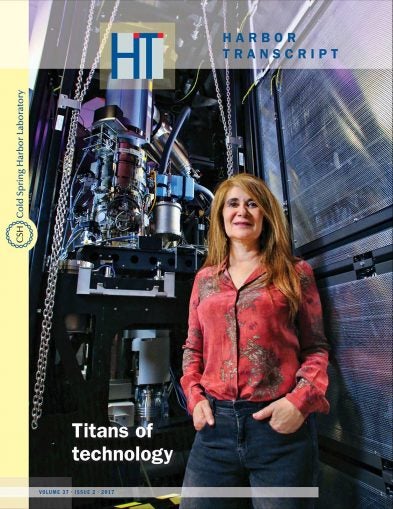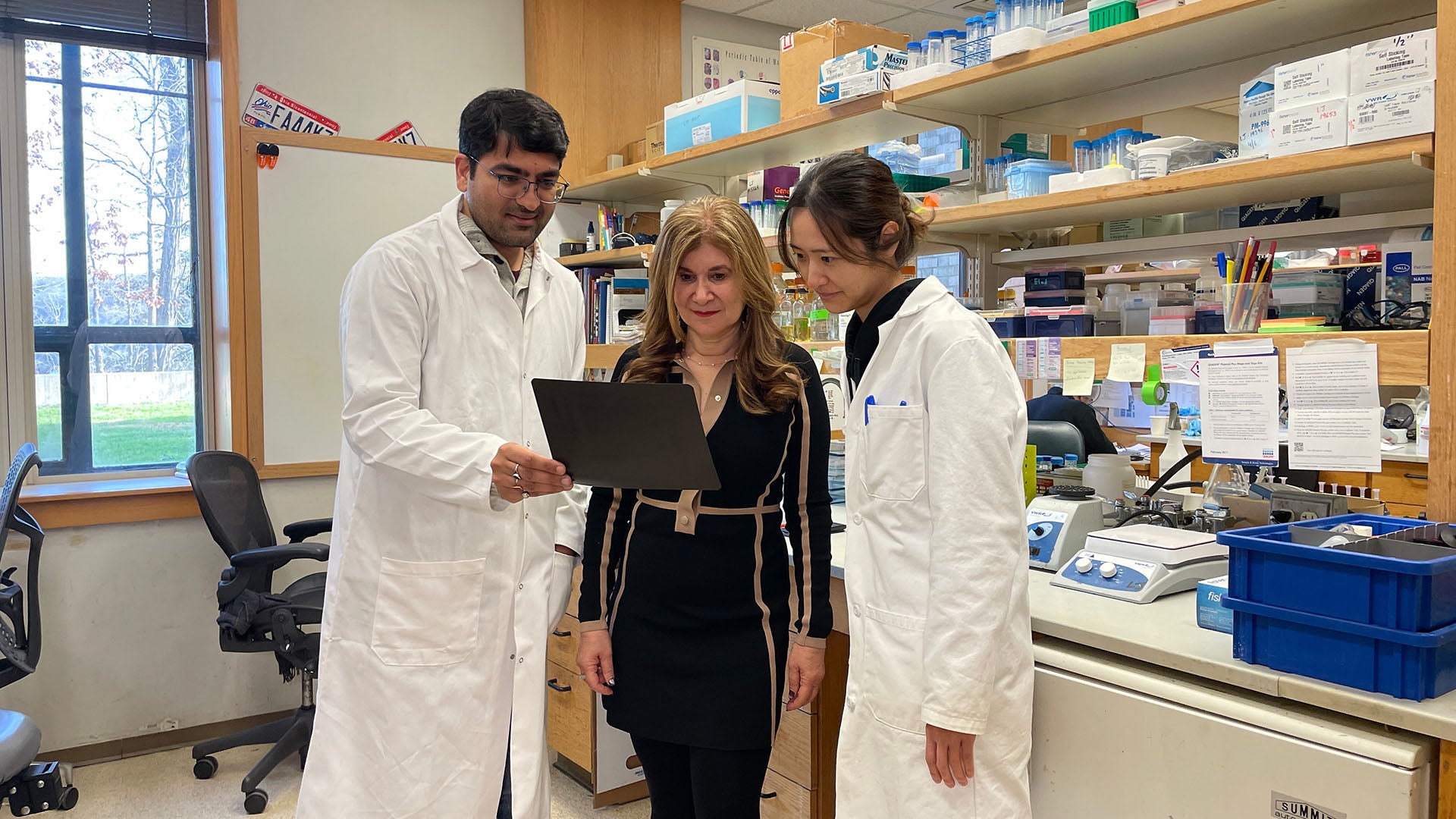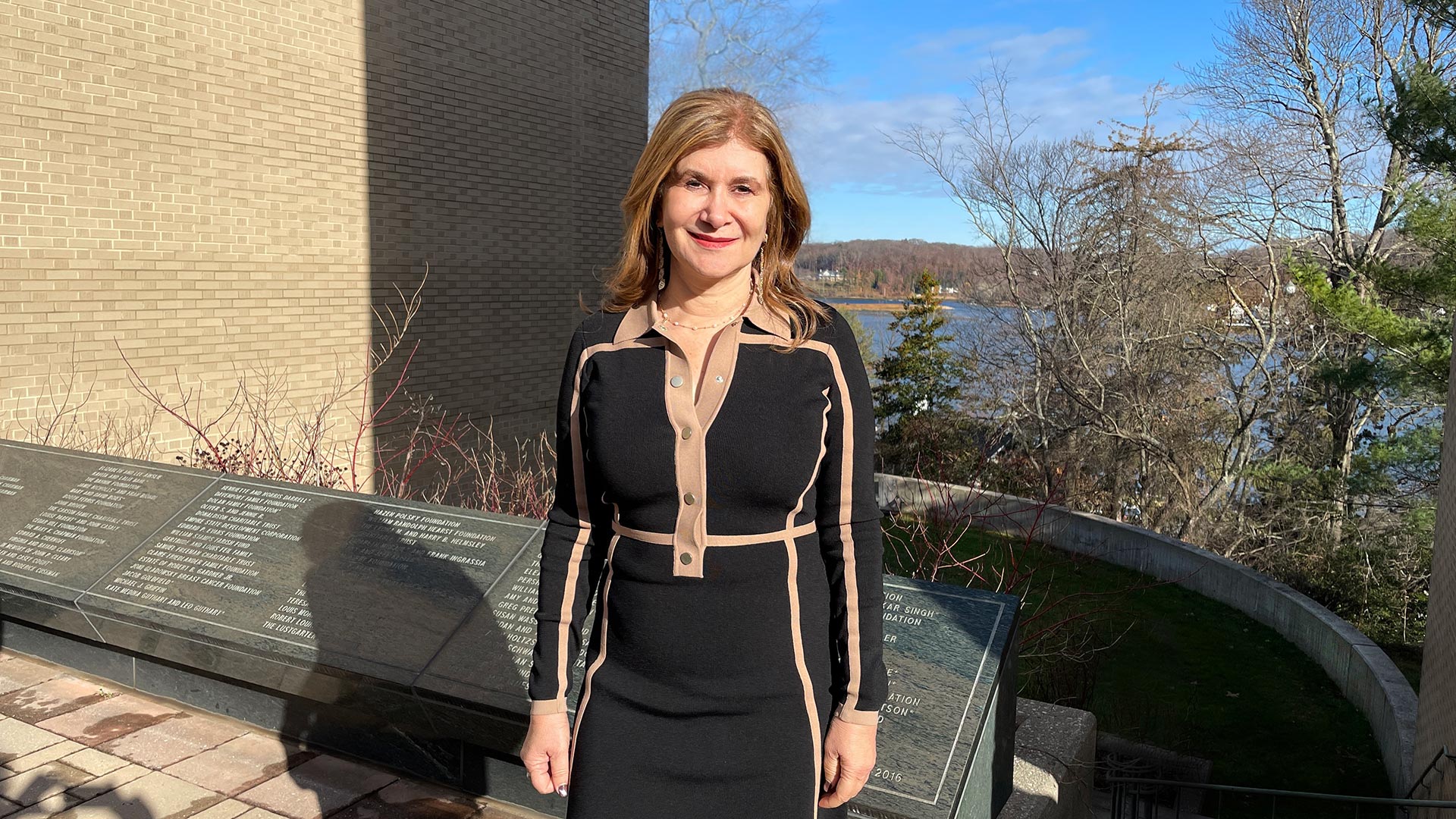Leemor Joshua-Tor describes her new role as director of research at Cold Spring Harbor Laboratory (CSHL) in no uncertain terms. “I am going to enable our faculty to carry out their dreams,” she says.

CSHL scientists tend to dream big. Joshua-Tor knows that to map the brain’s circuits, transform our understanding of cancer biology, and discover groundbreaking new treatment strategies, researchers need state-of-the-art equipment and many other resources. She also knows that pushing the boundaries of science requires fostering an open community where bright, creative people exchange ideas.
Joshua-Tor sees this happen every day at CSHL. She brings to her new role a powerful vision for helping her colleagues bring their dreams to life.
New directions
It’s an exciting time for bioscience research. New tools and knowledge have made it possible to explore biological systems at every level. Joshua-Tor steps into her new position as CSHL is poised for growth.
New construction, supported by the Foundations for the Future campaign, will create space for expanding research. Joshua-Tor will be instrumental in building up CSHL programs in three research areas at the heart of the campaign. These include brain-body physiology, neurodegenerative diseases, and neuroAI.
Each of these research areas offers a world of promise. But for Joshua-Tor, it’s their collective potential that’s most exciting. That’s a view informed by experience. Joshua-Tor began her independent research career at CSHL. Today, she is the W.M. Keck Professor of Structural Biology and an HHMI investigator. Her lab studies how tiny proteins and nucleic acids work together to control gene activity. Connecting these atomic-level observations to a greater grasp of whole-body health requires the kind of interdisciplinary research that flourishes at CSHL. And in Joshua-Tor’s eyes, that collaborative approach promises big payoffs. She says:
“Understanding all of these systems and how they interface with each other will lead to a much better understanding of our biology and how to utilize therapeutics in a much smarter way.”
New opportunities
Joshua-Tor is confident that the Laboratory’s research programs will unveil new insights about whole-body health and life itself. After all, knowledge uncovered at CSHL is already central to our understanding of health and disease. Looking ahead, Joshua-Tor aims to balance opportunities for CSHL scientists to pursue clinical and translational research with critical efforts to continue deepening our exploration of basic biology.
A recent partnership with New York’s largest healthcare system, Northwell Health, and increasing collaboration between industry and academia mean that CSHL faculty can now more easily follow up on their research. This empowers them to pursue new ideas that may one day directly impact patients.
As faculty pursue these exciting opportunities, Joshua-Tor says it will be important for CSHL to continue focusing on basic biology—laying the groundwork for clinical advances they may not yet anticipate.
“We definitely want to keep a strong basic science environment. We need that in order to develop things later that could translate into therapeutic opportunities.”
New people
As director of research, Joshua-Tor will lead CSHL’s efforts to recruit outstanding scientists in the areas prioritized through the Foundations for the Future campaign. Recruitment creates an opportunity to work toward another one of her goals: further increasing gender and racial diversity.

Joshua-Tor intends to maintain an environment where people from groups traditionally underrepresented in science can thrive. She is confident that an even more diverse faculty will lead to even stronger science at CSHL. Just as importantly, she says diverse representation is vital for inspiring future generations of scientists.
“We want young people to continue to go into science. And we want the science to look like the country. Otherwise, we won’t get the strongest people.”
Again, Joshua-Tor speaks from experience. She began her career in science at a young age. She came to the U.S. from across the globe. And she is a woman in a field still largely dominated by men. She knows she has seen tremendous success not despite these experiences but because of them.
New perspectives
Asked to describe CSHL’s vibrant culture, Joshua-Tor pauses to reflect. “It’s very no-nonsense,” she says. “Science is king.” As director of research, she aims to minimize administrative burdens so faculty members can focus on science.
Free-flowing conversations between researchers have long driven scientific discovery at CSHL. Joshua-Tor explains: “People discuss science, and when a good idea comes to the surface, we want to celebrate it and talk about it.” She plans to devote much of her time to listening so she can translate what she hears into action. “We hire strong, creative scientists, and they have ideas of how things could be done,” she says. “We want to maximize the effect that has on this place.”
Inevitably, CSHL faculty will take diverse approaches to unraveling the mysteries of bioscience. Above all, Joshua-Tor plans to support them in their work. “I think leadership has a big role in making things easy for people,” she says. “We’re there to make sure they have what they need to realize their ideas, even if they’re out of the box.”
It’s that kind of crystal-clear perspective CSHL needs to achieve its vision for the future. And Joshua-Tor is clearly the woman for the job.
Written by: Jennifer Michalowski, Science Writer | publicaffairs@cshl.edu | 516-367-8455
